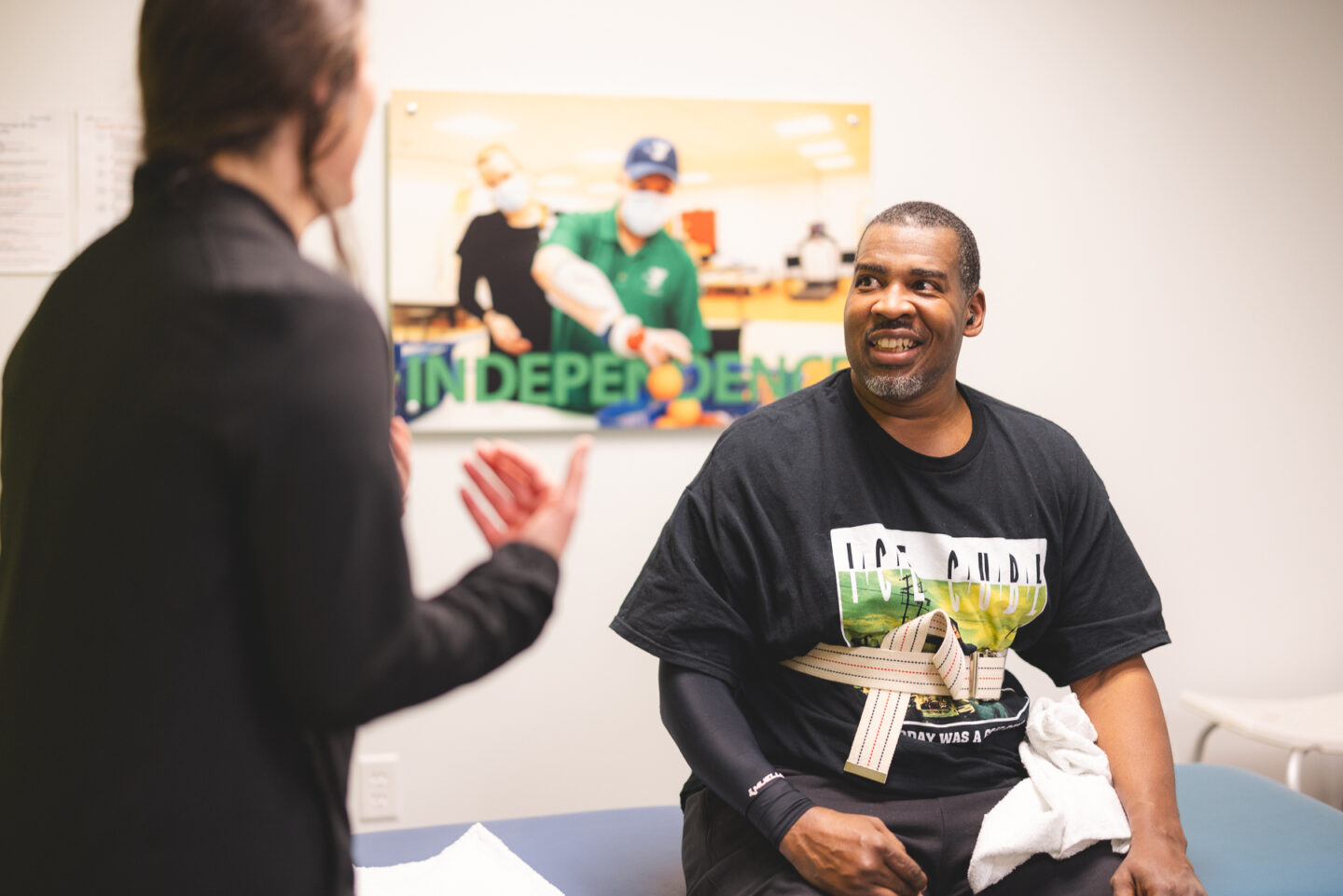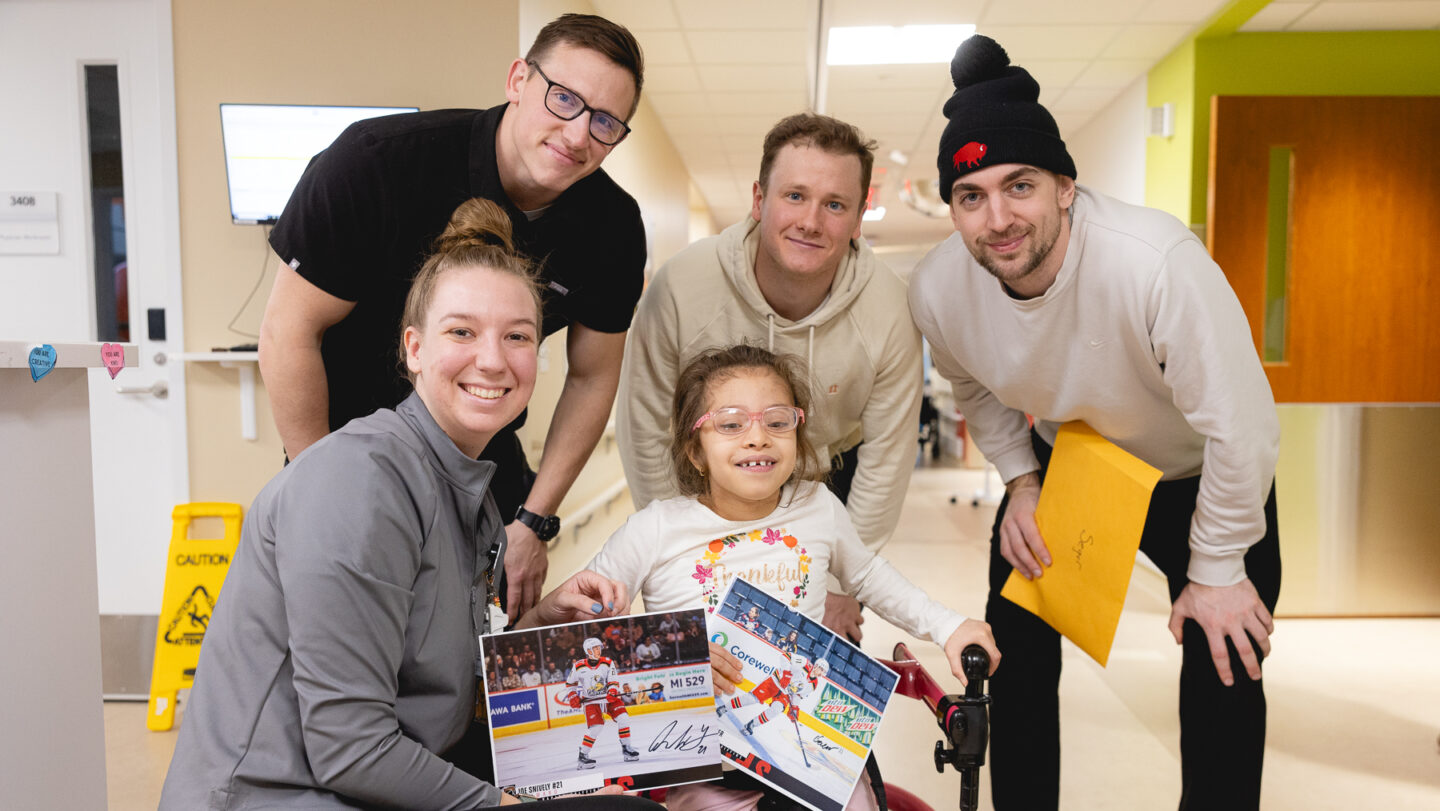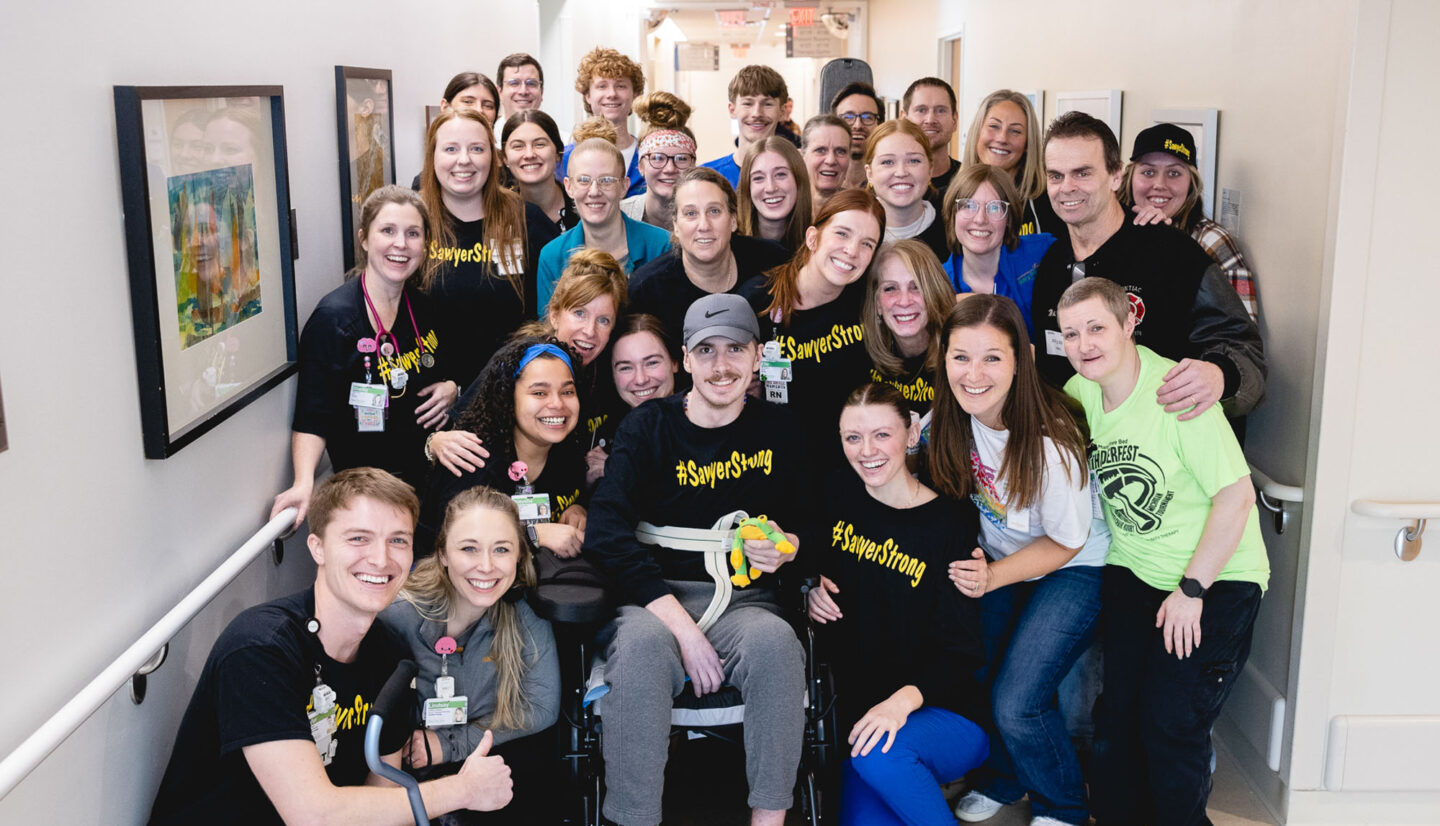Posted on September 8, 2011
Girl born with gross motor skill delays learns to crawl, walk
By Molly Cartwright
Emily Callahan, like any other 18-month-old, likes playing with her stuffed animals. A year ago, however, her mother, Heather Callahan, was worried that Emily wasn’t showing signs of physical development.
Babies typically begin crawling between 6 and 10 months. By the time Emily was 6 months old, she hadn’t yet started rolling over.
Neurologists performed several tests to discover the root of Emily’s gross motor skill delays. Doctors eventually told Heather that Emily had Early Childhood Developmental Delay, which meant that her physical abilities were not developing at the normal rate.
Although Heather was glad to know the name of Emily’s condition, she admitted it was still hard to understand how to deal with such a broad diagnosis.
“It was frustrating because there was nothing to put our finger on,” Heather said.
Heather always saw Mary Free Bed Rehabilitation Hospital as the place people went to for rehabilitation after a stroke or accident. When her daughter needed physical therapy, she was hopeful that Mary Free Bed could help Emily as well.
“It was a place I came to already trusting,” she said.
Once she began therapy, Emily started to show signs of improvement.
“They got her moving,” Heather said of the staff at Mary Free Bed who worked with Emily.
The therapists used many different exercises to help Emily roll over and crawl. The young patient, however, didn’t always love her physical therapy.
“The first 3 months, she was very unwilling,” Heather said. But Emily eventually learned to trust her therapists, Mary and Becky.
“Mary Free Bed does a very good job at making her feel comfortable and moving at her pace. (There was) just the right amount of pushing,” Heather added. Emily learned to reach, transition from her back to her knees, and strengthen her trunk.
“Mary was very supportive,” said Heather, who, as a first-time mother needed the therapists’ support and reassurance as much as Emily did. “At first I was really scared.”
Emily now comes to Mary Free Bed for therapy that will help her walk. While Emily enjoys getting to play with her Elmo toys during therapy sessions, Heather is glad that the therapists keep her focused. According to Heather, the therapists’ attitude at Mary Free Bed is: “This is fun and games, but we do have to work.” Heather said this attitude encourages her daughter to keep working.
As Emily improves, Heather’s wishes for her daughter are the same as any parent’s – she wants Emily to have the freedom to run and walk like a normal child, but most of all, she wants her to be happy.





